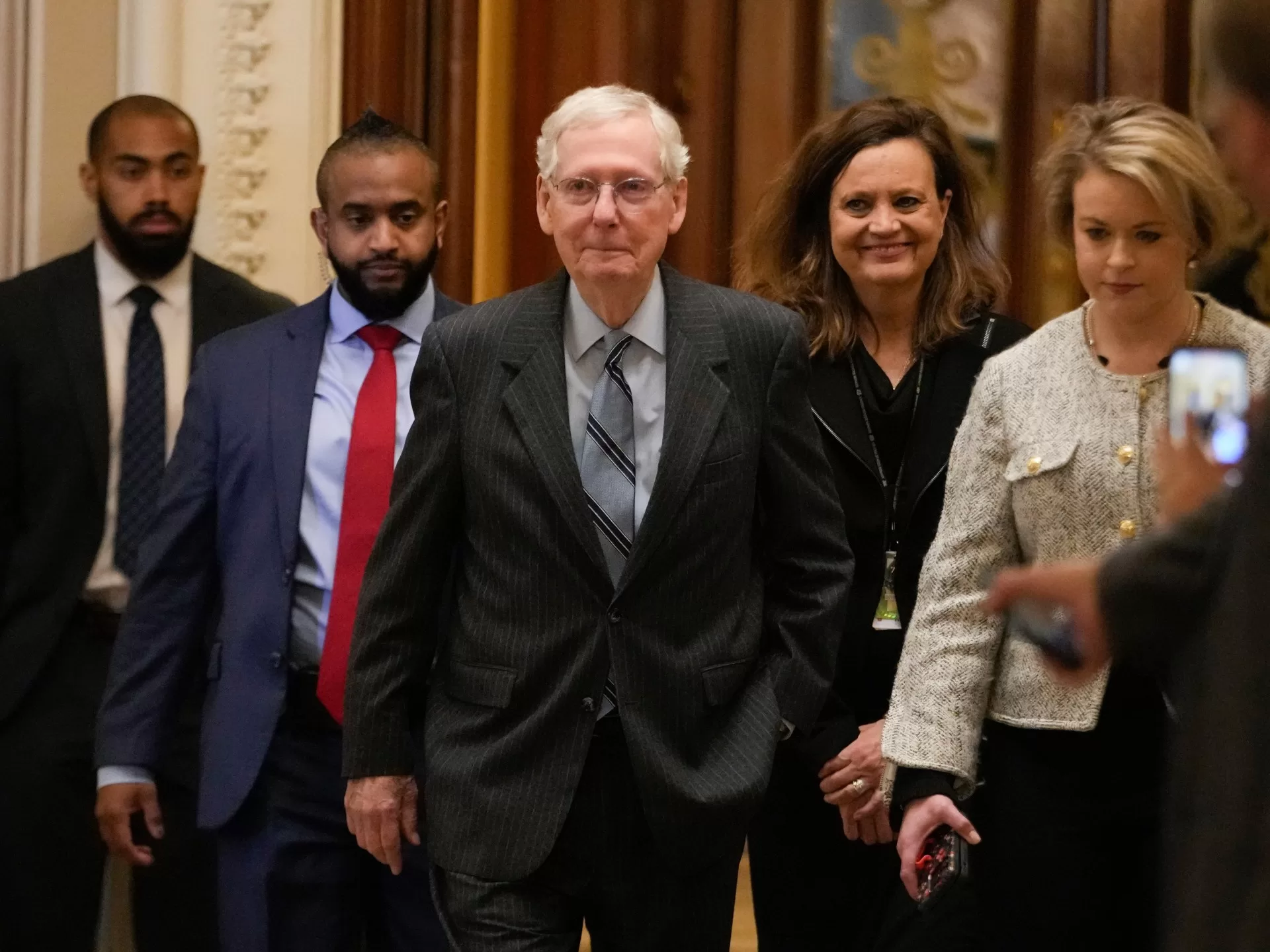The 82-year-old Kentucky lawmaker is the longest-serving Senate leader in history.
“I turned 82 last week. The end of my contributions are closer than I prefer,” McConnell said on the Senate floor on Wednesday, his voice breaking with emotion. “Father Time remains undefeated. I’m no longer the young man sitting in the back hoping colleagues remember my name. It’s time for the next generation of leadership.”
The 82-year-old Kentucky lawmaker played an outsized role in helping former President Donald Trump cement a 6-3 conservative majority in the Supreme Court, paving the way for landmark rulings cheered by conservatives ending the recognition of a constitutional right to abortion and expanding gun rights.
That belied McConnell’s personal opposition to Trump at times – particularly Trump’s conduct in advance of the January 6, 2021, attack on the US Capitol – as well as McConnell’s continued vocal support for trying to pass aid to Ukraine in its fight against a Russian invasion over the opposition of hardline Republican opponents.
Democrats hold a slim majority in the Senate, with McConnell now serving as minority leader after previously holding the post of majority leader. McConnell said he will not run for Senate Republican leader in November’s party elections, meaning he will end his time as leader when a new Congress convenes in January.
McConnell’s departure from the leadership will remove a central character in negotiations with Democrats and the White House on spending deals to keep the federal government funded and avert a shutdown.
Al Jazeera’s Shihab Rittansi, reporting from Washington, DC, said that McConnell was known as “someone who could count the votes and make sure he had the votes, an effective party leader in keeping his caucus together”.
“Of course, a big part of being a leader in Congress isn’t so much about policy, but raking in the cash. He was good at fundraising, making sure that the Republican Party and congressional Republicans had the money to keep things moving,” Rattansi added.
His steady command of his caucus stood in contrast to relatively newly minted Republican House of Representatives Speaker Mike Johnson, who has struggled to lead his thin majority.
McConnell twice froze up last year while making remarks in public, raising questions about his ability to continue to carry out the duties of his high-powered job. Those concerns were not assuaged by an August 31 note from the congressional physician that cleared McConnell to go on working.
He indicated that he plans to serve out the rest of his term in the Senate, which extends through to January 2027.
But his exit from the leadership will mark the step back of an orderly counterpart to the tumultuous approach of Donald Trump, the frontrunner for the Republican nomination to challenge Democratic President Joe Biden, and the hardline House Freedom Caucus before the November 5 US election for president, the full House and a third of the Senate.
Now, with Republicans having to elect a new party leader, conservative pressure to hang tough against a moderate spending deal with Democrats could weigh more heavily on the budget negotiations and the leadership election.
McConnell announced his plans on the Senate floor the morning after Trump won the Michigan Republican primary, continuing his sweep towards the party’s nomination.
“I think the Trump chapter reopening is his cue to exit stage left,” a former high-ranking Senate Republican aide said when asked about the timing of McConnell’s move.
John Thune of South Dakota, the second most senior Senate Republican, is expected to vie for the top party job, as well as John Cornyn, a senator from Texas, and John Barrasso, from Wyoming.
